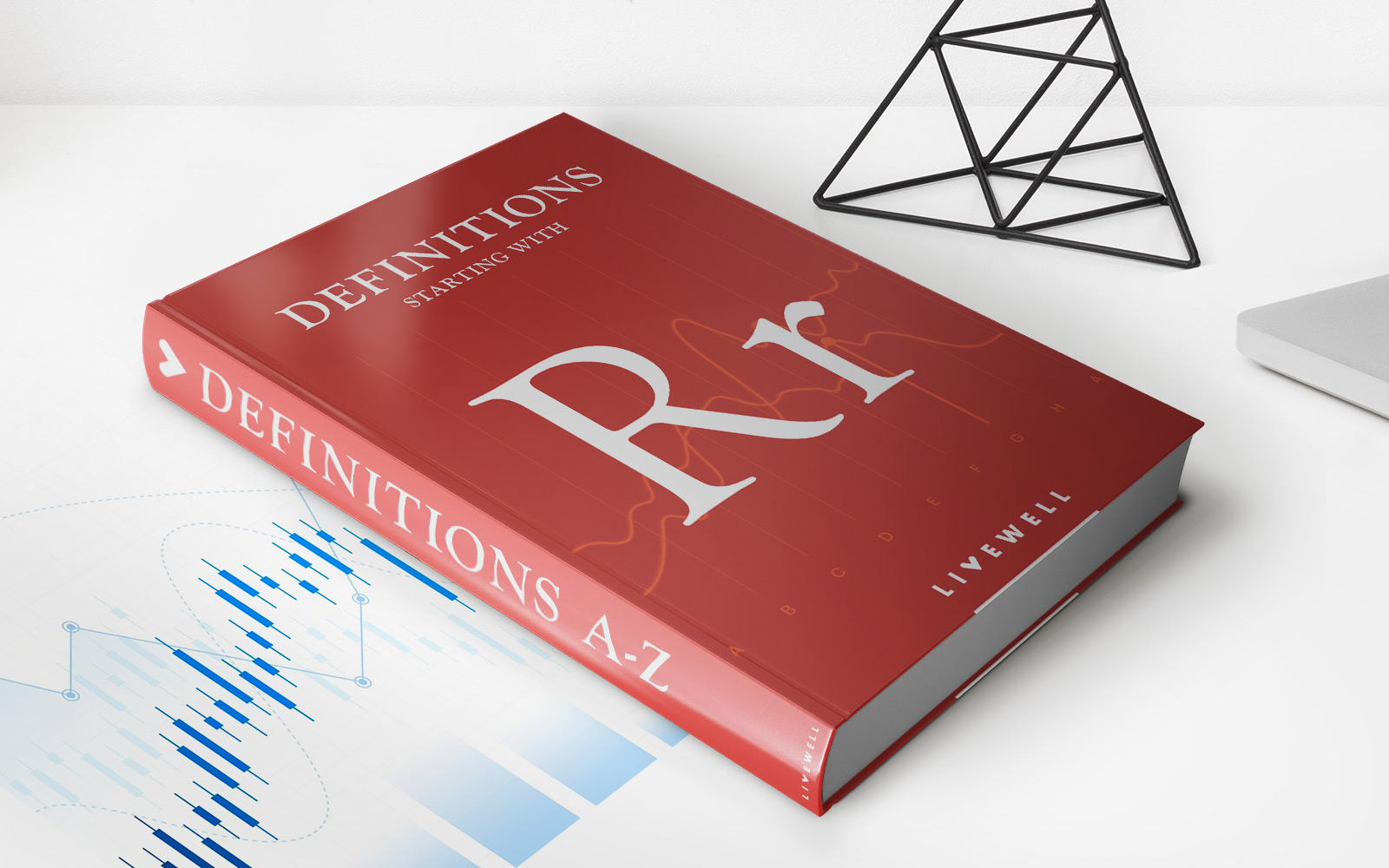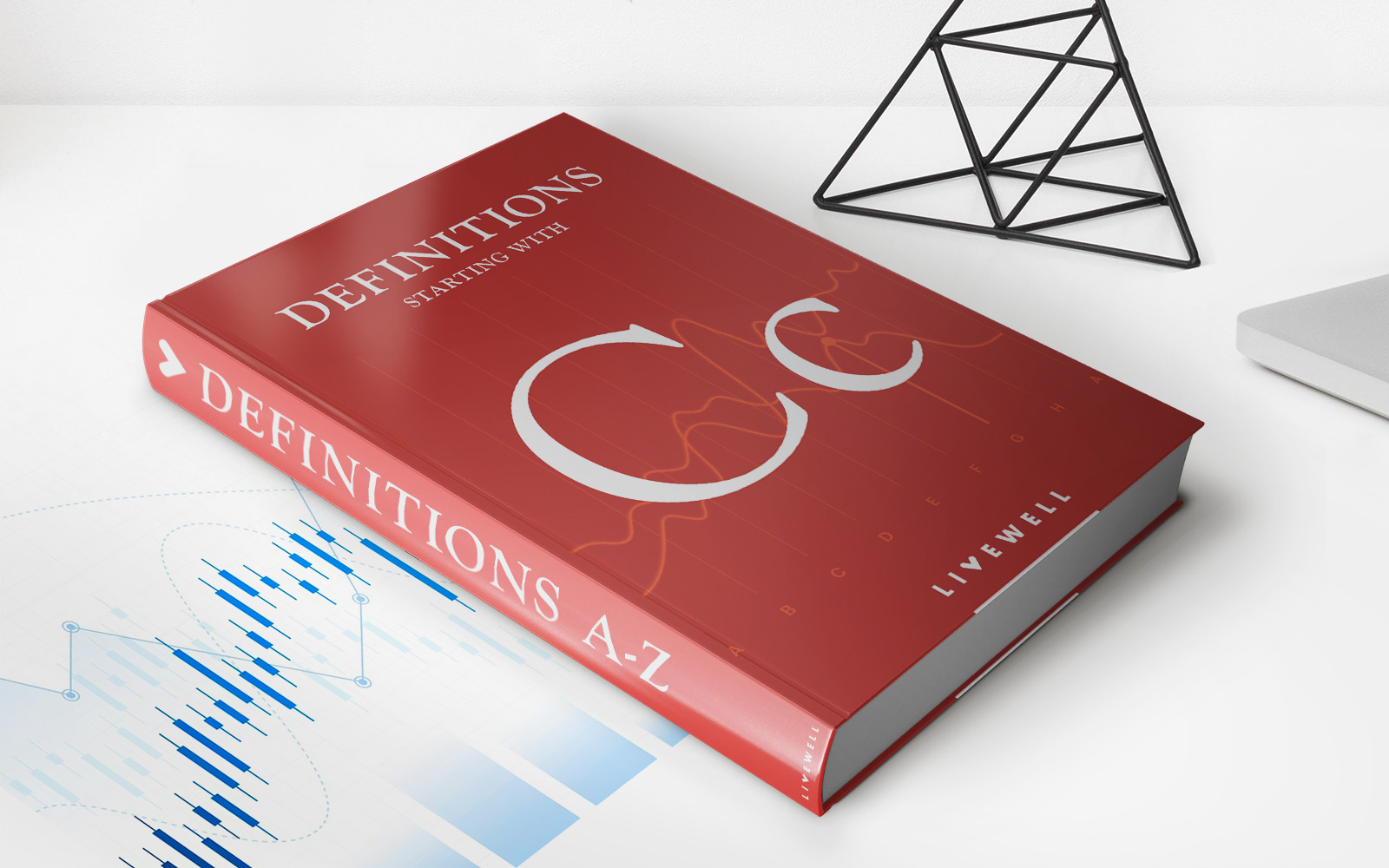

Finance
How Much Is Title Insurance?
Modified: February 21, 2024
Finance your peace of mind with title insurance. Find out how much title insurance costs and protect your investment today.
(Many of the links in this article redirect to a specific reviewed product. Your purchase of these products through affiliate links helps to generate commission for LiveWell, at no extra cost. Learn more)
Table of Contents
Introduction
Welcome to the world of title insurance! Whether you are in the process of buying a new home, refinancing your mortgage, or investing in real estate, title insurance is an essential component of the transaction. In this article, we will explore the intricacies of title insurance, its significance, and the factors that influence its cost.
So, what exactly is title insurance? When you purchase a property, you acquire certain rights and interests in that property. These rights are recorded in official public records, establishing your legal ownership. However, issues can arise that may compromise your ownership and cause potential financial loss.
Title insurance is designed to protect you from these risks by providing coverage for certain losses that may occur due to hidden defects or claims against the property’s title. These hidden defects can range from forged documents and undisclosed heirs to unpaid taxes and fraudulently filed liens.
Now, you may wonder why you need title insurance if you have already conducted a title search during the transaction process. While a title search is an important step, it does not guarantee the discovery of all potential issues. Title insurance serves as an extra layer of protection, shielding you from any unforeseen problems that may arise after the purchase is complete.
The cost of title insurance can vary depending on various factors. These factors include the location of the property, the purchase price, loan amount, and the type of policy you choose. Additionally, there are certain one-time fees associated with the issuance of a title insurance policy, such as examination and closing fees.
In the next sections, we will delve further into the factors that affect title insurance cost, explore the average prices, explain how premiums are calculated, and provide tips on how to save money on title insurance. So, let’s get started on demystifying the world of title insurance!
What is Title Insurance?
Title insurance is a specialized type of insurance that provides protection for homeowners and mortgage lenders against potential financial loss due to defects in a property’s title. It safeguards the policyholder from any claims or disputes that may arise regarding the ownership or legal rights to the property.
When you purchase a property, a title search is conducted to examine the history of the property’s ownership and to uncover any potential issues with the title. These issues can include unpaid taxes, liens, encroachments, easements, or other legal complications that could affect the property’s ownership.
Despite a thorough title search, there may still be hidden defects or undiscovered claims against the property that could emerge in the future. These defects may not be evident during the purchase transaction, but they can pose significant financial risks down the line.
Title insurance provides financial protection by assuming the risks associated with the property’s title. If a covered claim arises, the policyholder is reimbursed for losses incurred, including legal fees and court costs, up to the policy’s coverage amount.
There are two types of title insurance policies: owner’s policy and lender’s policy. The owner’s policy protects the homeowner’s investment in the property, while the lender’s policy protects the mortgage lender’s financial interest in the property.
It’s important to note that title insurance is different from other types of insurance policies. Unlike health insurance or auto insurance, which provide coverage for future events, title insurance focuses on protecting against past events or legal issues that may arise from the property’s history.
Having title insurance is crucial for homeowners because it offers peace of mind and financial security. It ensures that you have valid and clear ownership of the property and protects you from potential legal battles or costly claims that could arise after the purchase.
Now that we have a solid understanding of what title insurance entails, let’s explore why it is necessary for anyone involved in real estate transactions.
Why Do You Need Title Insurance?
Title insurance is not a legal requirement, but it is highly recommended for anyone involved in a real estate transaction. Here are some important reasons why you need title insurance:
- Protects Your Ownership: Title insurance protects your ownership rights to the property. It provides coverage against any defects or claims that may arise in the future, ensuring that you are the rightful owner of the property.
- Defends Against Hidden Defects: Even with a thorough title search, there may be hidden defects that are not discovered. Title insurance safeguards you from any unforeseen issues with the property’s title, such as forged documents, undisclosed heirs, or errors in public records.
- Protects Your Investment: A home is a significant investment, and title insurance helps protect that investment. If a claim is made against your property, the policy will cover the costs associated with defending your title, including legal fees and court costs.
- Safeguards Against Fraud: Title insurance provides protection against fraudulent activities related to the property’s title. It offers peace of mind knowing that you are protected from potential scams or schemes that could threaten your ownership rights.
- Satisfies Lender Requirements: When obtaining a mortgage, most lenders require a lender’s title insurance policy as a condition of the loan. This policy protects the lender’s interests in the property and ensures that their investment is secure.
- Transfer of Title: If you decide to sell your property in the future, having title insurance can make the transfer process smoother. It provides assurance to potential buyers that the property’s title is clear and free from any legal issues.
Without title insurance, you could be susceptible to financial loss, costly legal battles, or even the risk of losing your home. It is a small investment compared to the potential consequences of not having coverage.
Remember, title insurance offers protection against past events or undiscovered issues with the property’s title. It is a proactive measure to safeguard your investment and provide peace of mind when it comes to your property ownership.
In the next section, we will discuss the factors that can affect the cost of title insurance.
Factors Affecting the Cost of Title Insurance
The cost of title insurance can vary depending on several factors. Understanding these factors can help you better estimate the cost associated with obtaining a title insurance policy. Here are the main factors that influence the cost:
- Property Value: The purchase price or appraised value of the property is a significant factor in determining the cost of title insurance. Generally, as the property value increases, the premium for title insurance will also increase.
- Loan Amount: If you are obtaining a mortgage loan, the loan amount can impact the cost of title insurance. The higher the loan amount, the higher the premium for the lender’s title insurance policy.
- Location: The location of the property can affect the cost of title insurance. Certain areas may have a higher risk of title issues or claims, which can result in higher premiums. Additionally, local regulations and market conditions can influence the cost as well.
- Type of Policy: There are two main types of title insurance policies: owner’s policy and lender’s policy. The cost will vary depending on whether you are purchasing an owner’s policy, a lender’s policy, or both. In most cases, the owner’s policy carries a higher premium.
- Title Search and Examination: The process of conducting a title search and examination is an essential part of issuing a title insurance policy. The complexity and thoroughness of this process can affect the cost of title insurance.
- Additional Endorsements: Endorsements are optional coverages that can be added to a title insurance policy to provide additional protection. The cost of these endorsements can increase the overall premium for the policy.
- Insurance Provider: The cost of title insurance can vary between different insurance providers. It is always a good idea to shop around and compare quotes from multiple companies to ensure you are getting the best rates.
It’s important to note that title insurance is typically a one-time fee paid at the time of closing. Unlike other types of insurance policies, there are no ongoing premiums. The cost of title insurance is a small percentage of the property’s value or loan amount, usually ranging from 0.5% to 1%.
Considering the potential risks and financial loss associated with title issues, the cost of title insurance is a reasonable investment to protect your ownership rights and provide peace of mind.
In the next section, we will explore the average price of title insurance to give you a better idea of what to expect in terms of costs.
Average Price of Title Insurance
When it comes to estimating the cost of title insurance, it’s essential to consider the average prices. While actual costs can vary depending on the factors mentioned earlier, having a general understanding of the average price range can be helpful. Here’s an overview:
On average, title insurance premiums can range from 0.5% to 1% of the property’s purchase price or loan amount. For example, if you are purchasing a property for $300,000, you can expect to pay between $1,500 and $3,000 for title insurance.
It’s important to note that this range is a general guideline and can fluctuate based on various factors specific to your transaction. Additionally, the cost can be influenced by the region and insurance provider you choose.
In some cases, the lender’s policy and owner’s policy may be bundled together, resulting in a lower overall cost. However, it’s always a good practice to obtain quotes from different insurance providers and compare the coverage and costs to ensure you are getting the best deal.
In addition to the premium, there are other fees associated with title insurance, such as examination fees, closing fees, and optional endorsements. These one-time fees typically range from a few hundred dollars to a few thousand dollars and are separate from the premium itself.
Remember, the cost of title insurance is a small percentage of the overall transaction, considering the potential financial protection it provides. When compared to the potential costs of legal issues or disputes related to the property’s title, obtaining title insurance is a valuable investment.
In the next section, we will explore how title insurance premiums are calculated, giving you a deeper understanding of the pricing structure.
How Title Insurance Premiums are Calculated
The calculation of title insurance premiums can vary depending on several factors. Understanding how these premiums are determined can help you better understand the pricing structure. Here are the key aspects considered in calculating title insurance premiums:
- Property Value or Loan Amount: The property value or loan amount is a primary factor in determining the title insurance premium. Generally, as the property value or loan amount increases, the premium will also increase proportionately.
- Type of Policy: The type of title insurance policy also influences the premium. The owner’s policy typically carries a higher premium than the lender’s policy due to the broader coverage it provides.
- State-Specific Regulations: Each state may have its own regulations regarding how title insurance premiums are calculated. This can impact the pricing structure and may result in variations from state to state.
- Insurance Provider: Different title insurance companies may have varying premium rates. It is advisable to obtain quotes from multiple providers to compare rates and ensure you are getting the best value for your coverage.
- Additional Endorsements: If you opt to include any optional endorsements to enhance the coverage of your title insurance policy, the cost of these endorsements will be added to the total premium.
- Location and Risk Assessment: The location of the property can affect the premium calculation. This is because some areas may have a higher risk of title issues or claims. The insurance company will assess the risk associated with that specific location and adjust the premium accordingly.
It’s important to note that the premium for title insurance is typically a one-time payment made at the time of closing. This payment provides coverage for the duration of your ownership or the life of the mortgage, depending on the policy.
To obtain an accurate estimate of the title insurance premium for your specific transaction, it’s recommended to reach out to a licensed title insurance agent. They will be able to assess the details of your transaction and provide a quote based on the factors mentioned above.
In the forthcoming section, we will share some useful tips on how to save money on title insurance without compromising on the protection it offers.
How to Save Money on Title Insurance
While title insurance is a crucial investment, there are ways you can potentially save money on your policy. Here are some tips to help you reduce the cost of title insurance:
- Shop Around: Obtain quotes from multiple title insurance companies to compare rates and coverage options. Different providers may have varying premiums, so it’s worth exploring your options to find the best value.
- Bundling Policies: Inquire about bundled policies where the owner’s policy and lender’s policy are combined. This can result in cost savings compared to purchasing the policies separately.
- Negotiate the Premium: While it may not always be possible, try negotiating the premium with the title insurance company. They may be open to providing a discounted rate or waiving certain fees, especially if you mention competitive quotes from other providers.
- Consider Reissue Rates: If the property has had a recent title insurance policy, ask the title insurance company about reissue rates. These are discounted rates offered for properties with existing policies that are still valid. It can result in significant savings on the premium.
- Ask About Discounts: Inquire about any discounts that may be available. For example, some insurance providers offer discounts for new construction properties or properties that have recently undergone a title search.
- Review the Title Commitment: Carefully review the title commitment provided by the title insurance company. It details the potential risks and exceptions to coverage. Understanding this information can help you identify any issues that may impact the premium and potentially negotiate a lower rate.
- Work with an Independent Escrow/Title Company: Independent escrow or title companies offer competitive rates as they are not affiliated with any specific insurance provider. Consider working with them to potentially secure a better deal.
While it’s important to save money, be cautious not to compromise on the coverage provided by your title insurance policy. Remember, the objective is to protect your investment in the property and secure your ownership rights.
By being proactive and exploring these money-saving strategies, you can potentially reduce the cost of title insurance while still maintaining the level of protection you need.
Now that we have discussed ways to save money, let’s address some common questions related to title insurance in the next section.
Frequently Asked Questions
Here are some common questions about title insurance:
- Is title insurance required?
- How long does title insurance coverage last?
- What does title insurance not cover?
- Can I choose my own title insurance company?
- What happens if a claim is made against my property’s title?
- Can I transfer my title insurance policy to a new owner?
- Is title insurance a one-time payment?
No, title insurance is not legally required. However, it is highly recommended for anyone involved in a real estate transaction to protect their investment and ownership rights.
Title insurance coverage typically lasts for as long as you own the property or have a mortgage on it. Once you sell the property or pay off the mortgage, the policy coverage will end.
Title insurance does not cover issues that arise after the policy has been issued. It also typically excludes certain risks such as environmental hazards, zoning violations, or matters not recorded in public records.
In most cases, you have the ability to choose your own title insurance company. It’s recommended to do your research and compare quotes from different providers to find the best fit for your needs.
If a claim is made against your property’s title, your title insurance company will provide the necessary legal defense. They will cover the costs associated with defending your title and, if the claim is valid, reimburse you for any financial loss up to the policy’s coverage amount.
No, title insurance policies are non-transferable. When you sell the property, the new owner will need to obtain their own title insurance policy to protect their ownership rights.
Yes, title insurance is typically a one-time payment made at the time of closing. Unlike other types of insurance policies, there are no ongoing premiums or monthly payments.
These are just a few of the commonly asked questions about title insurance. If you have specific concerns or inquiries, it is recommended to consult with a licensed title insurance professional who can provide personalized guidance based on your unique situation.
In the concluding section, we will summarize the key points discussed in this article on title insurance.
Conclusion
Title insurance is a vital component of any real estate transaction, providing protection against potential issues or disputes related to the property’s title. It offers financial security, ensuring that your investment is safeguarded and your ownership rights are protected.
In this article, we explored the concept of title insurance, discussing why it is necessary and the factors that influence its cost. We learned that title insurance protects your ownership, defends against hidden defects, and safeguards your investment. The cost of title insurance can vary based on factors such as property value, loan amount, location, and type of policy.
To save money on title insurance, consider shopping around, bundling policies, negotiating the premium, and exploring discounts or reissue rates. While saving money is important, it is equally crucial to maintain the coverage you need to protect your investment and ownership rights.
Remember, title insurance is a one-time payment made at the time of closing, offering coverage for the duration of your ownership or mortgage. It provides peace of mind by ensuring a clear and valid title, protecting you from potential legal battles or financial loss arising from title issues.
If you have further questions or concerns, it is recommended to consult with a licensed title insurance professional who can provide personalized guidance based on your specific circumstances.
Now that you have a better understanding of title insurance, its importance, and how to navigate its cost, you can confidently approach your real estate transactions with the knowledge and protection you need.














